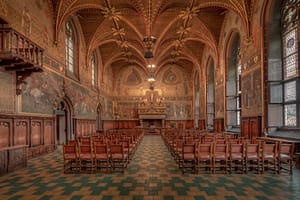Belgium as a settled region dates back to Roman times when it was named Belgica. During the Middle Ages and until the 17th century, the country was a hub for culture and commerce, and a favorite central location for battles between various European powers. This unfortunate accident of geography resulted in it being nicknamed the ‘Battleground of Europe’, a name which proved tragically apposite during WWI and WWII.
Considered a part of the Netherlands until the Belgian Revolution in 1830, the country became neutral and independent, establishing its position as a constitutional monarchy under King Leopold 1 in 1831. Its constitution is based on the Napoleonic Code, and democracy reared its head with suffrage for men in 1893, although women had to wait to vote until 1949.
Belgium was active during the Industrial Revolution, improving its economy as a result, and the acquisition of the Belgian Congo as a gift to Leopold II brought benefits including the marketing of rubber and ivory, as well as heavy criticism for the Belgians’ poor treatment of the ethnic Congolese tribes.
The Germans invaded in 1914, soon after the start of WWI, and the Western Front battles mostly took place on Belgian soil. In 1940, history repeated itself with the country overrun by German troops, who remained in occupation until 1944, when liberation by the Allied forces took place as part of their push towards Germany. The Belgian sites of the 20th century battles are now marked with monuments, landmarks, cemeteries of the fallen, and the ruins of German outposts and gun emplacements.
Any attempt at a general overview of Belgian culture will fall short of the reality, due to the division of the little country into three linguistic groups and the cultural influxes seeping across its borders from the Netherlands, France, Germany, and Luxembourg. The official languages here are German, Dutch, and French, although 33 percent of the inhabitants speak the old tongue of Walloon and a variant of Dutch, Flemish, is spoken by at least 60 percent.
Belgium is a refreshingly tidy and clean country. Belgium’s incredibly rich artistic tradition extends from its artworks to its architecture, music, literature, and traditionally authentic folkloric festivals, with all forming a strong part of the people’s cultural awareness in the present day. Museum and art gallery visits are very popular, and the many medieval old towns are a great source of pride. Even the famous Belgian craft beers have a cultural identity, especially those from the six Belgian Trappist monasteries which are permitted to brew strong ale.

